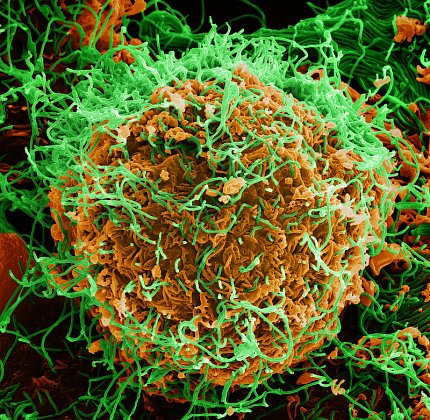Ebola Vaccine Regimens Found Safe, Immunogenic in Adults, Children

Photo: NIAID
Two randomized, placebo-controlled trials evaluating three Ebola vaccine administration strategies found that all the regimens were safe in adults and children, according to results published in the New England Journal of Medicine.
Antibodies were produced in response to the vaccine regimens beginning at 14 days after the first vaccination and continued to be detectable at varying levels—depending on the vaccine and regimen used—in both children and adults for one year. The study enrolled volunteers at sites in Guinea, Liberia, Sierra Leone and Mali to identify optimal vaccination strategies to curtail outbreaks of Ebola virus disease.
The trials were conducted under the Partnership for Research on Ebola Vaccination (PREVAC) international consortium. PREVAC’s partner organizations include NIH, the French National Institute of Health and Medical Research and the London School of Hygiene & Tropical Medicine.
NIAID sponsored the trials in Liberia in collaboration with the Liberia Ministry of Health and in Mali, in partnership with the University Clinical Research Center and the Center for Vaccine Development-Mali.
The trials were conducted simultaneously, with enrollment beginning in 2017. A total of 1,400 adults and 1,401 children ages 1 year to 17 years old were randomized to receive two injections of either placebo or Ebola vaccine in one of three regimens.
Antibody responses were observed by day 14 after the first injection of vaccine, which is notable because vaccines against Ebola virus are typically administered during an outbreak so information about how rapidly a vaccine produces an antibody effect is useful in efforts to protect at-risk populations.
